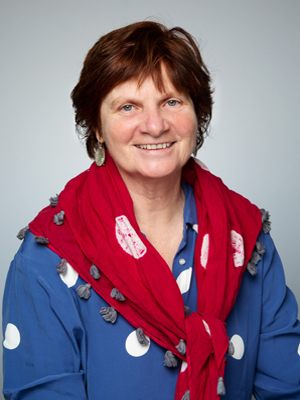
Roberta O'Connor, PhD
Titles
Education
- PhD, College of Veterinary Medicine, University of Florida, Gainesville, Florida
- MS, Cornell University, Ithaca, New York
- BS, University of Rhode Island, Kingston, Rhode Island
Biography
I am a molecular parasitologist with a particular interest in apicomplexan host-parasite interactions. Although my lab now focuses on drug discovery, I still have research interests in the molecular and immune interactions that allow parasites to infect and persist in their host. We also focus on establishing new methods for culturing parasites that better mimic the host environment. In addition to my research, I have taught students at all levels from high school to graduate school and I greatly enjoy mentoring and inspiring my students to be great scientists and well-rounded humans.
Expertise
- Host-pathogen interactions
- Immunology
- Apicomplexan biology
- Organoid culture
- Drug discovery
- Drug target identification
Awards & recognition
- Natalie V. Zucker Award, Tufts University School of Medicine,
- Max Finland Award, Massachusetts Infectious Diseases Society
- Charlton Grant, Tufts Medical Center
- Tufts Medical Center Research Fund
Professional associations
- Adjunct Associate Professor, Veterinary Microbiology and Pathology, Washington State University, Pullman, Washington
Research
Research summary/interests
My laboratory focuses on natural product drug discovery for diseases caused by apicomplexan parasites. Because ocean flora and fauna are a rich source of unusual compounds, we screen marine sources for anti-parasitic compounds. One of our compounds currently under investigation came from a symbiotic bacterium of shipworms, marine clams that eat wood. Our parasites of interest are Cryptosporidium and Toxoplasma gondii. Once we have identified compounds effective against these parasites, and that are not toxic to host cells, we try to identify the target of the compound using a variety of techniques such as forward genetics, RNAseq, and proteomics. To improve our screening assays and parasite culture techniques we work with intestinal organoids from a variety of species. Promising compounds are further investigated for their pharmacokinetic properties and efficacy in vivo.
Research funding grants
- NIH NIAID Development of a new marine natural product for the treatment of cryptosporidiosis, an AIDS defining disease
- NIH NIAID Discovery of Marine Natural Products Effective against the AIDS associated pathogen Cryptosporidium
Publications
Selected publications
- RM O’Connor, FJ Nepveux V, J. Abenoja, G. Bowden, P. Reis, J. Beaushaw, R. Relat, I. Driskell, F. Gimenez, M.W. Riggs, D. A. Schaefer, E.W. Schmidt, Z. Lin, D.L. Distel, J. Clardy, T. Ramadhar, D.R. Allred, H. Fritz, P. Rathod, L. Chery, J. White. A symbiotic bacterium of shipworms produces a compound with broad spectrum anti-apicomplexan activity. PloS Pathogens. 16(5):e1008600. https://doi.org/10.1371/journal.ppat.1008600
- Heo I, Dutta D, Schaefer DA, Iakobachvili N, Artegiani B, Sachs N, Boonekamp KE, Bowden G, Hendrickx APA, Willems RJL, Peters PJ, Riggs MW, O'Connor RM, Clevers H. Modelling Cryptosporidium infection in human small intestinal and lung organoids. Nat Microbiol. 2018 Jul;3(7):814-823. doi: 10.1038/s41564-018-0177-8. Epub 2018 Jun 25.
- O'Connor RM, Fung JM, Sharp KH, Benner JS, McClung C, Cushing S, Lamkin ER, Fomenkov AI, Henrissat B, Londer YY, Scholz MB, Posfai J, Malfatti S, Tringe SG, Woyke T, Malmstrom RR, Coleman-Derr D, Altamia MA, Dedrick S, Kaluziak ST, Haygood MG, Distel DL. Gill bacteria enable a novel digestive strategy in a wood-feeding mollusk. Proc Natl Acad Sci U S A. 2014 Nov 25;111(47):E5096-104.
- O'Connor RM*, Burns PB, Ha-Ngoc T, Scarpato K, Khan W, Kang G, Ward H. Polymorphic mucin antigens CpMuc4 and CpMuc5 are integral to Cryptosporidium parvum infection in vitro. Eukaryot Cell. 2009 Apr;8(4):461-9. doi: 10.1128/EC.00305-08. Epub 2009 Jan 23. PubMed PMID: 19168754; PubMed Central PMCID: PMC2669191.
- O'Connor RM, Allred DR. Selection of Babesia bovis-infected erythrocytes for adhesion to endothelial cells coselects for altered variant erythrocyte surface antigen isoforms. J Immunol. 2000 Feb 15;164(4):2037-45. doi: 10.4049/jimmunol.164.4.2037. PubMed PMID: 10657656
Teaching
Courses
- Comparative Molecular Biology (CMB 8202)